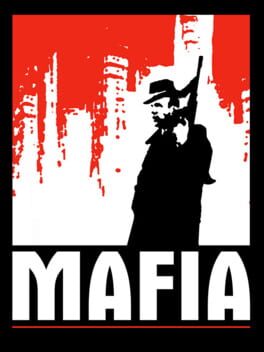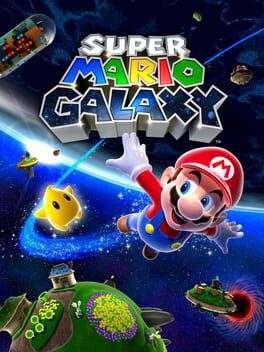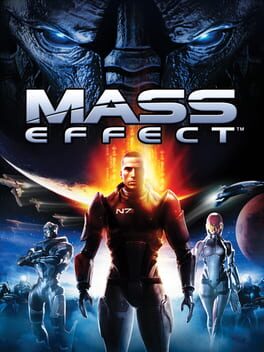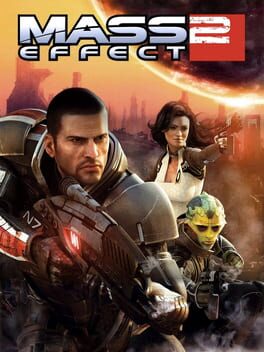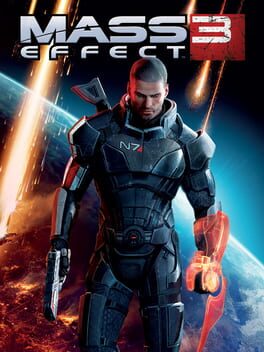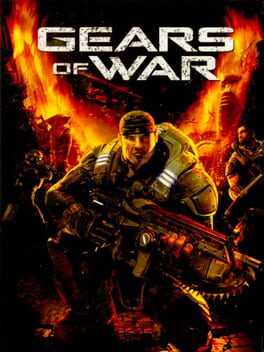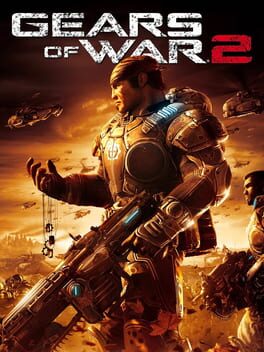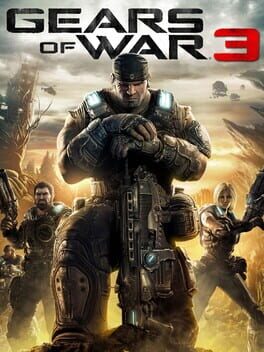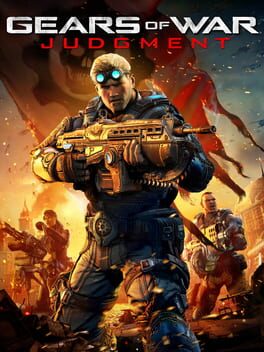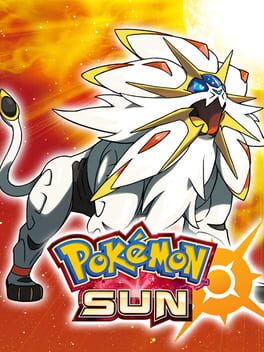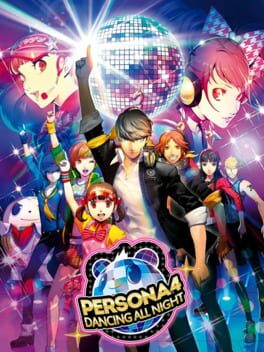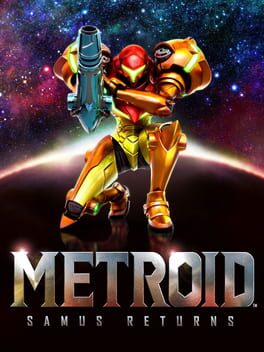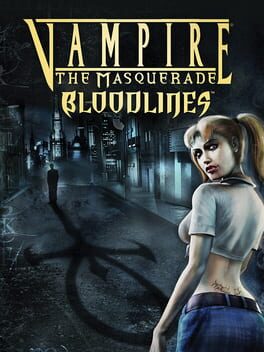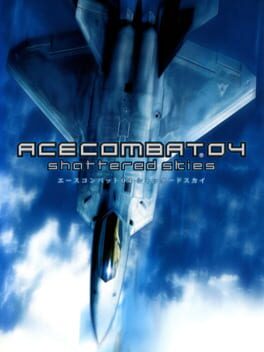funsohng
2002
When most people got into open world games with GTA 3 or Vice City in my generation, I got into it with Mafia. It's probably difficult to play it now, but it was a transcendental experience back in the day for me, a true culture shock.
This was the first game that I played that made me want to walk. I still remember this, after almost 17 years. There is a scene where you escort the barkeep's daughter to her apartment. Normally, I would move around, being bored about this forced sequence. But this time, I wanted to walk, be part of the atmosphere. Many games now have cinematic walking, but this game made me want to walk. There is a difference. It wasn't that I wanted to watch something cinematic, or feel like I was watching a movie; I wanted to feel like I was a part of the scene, part of the diegesis, part of that universe and what was happening at the time. It was role playing, and I wanted not only to clear an objective or get to the next cutscene; I wanted to be Tommy. It is a sensation that may have been done better since, but certainly a rare quality among its contemporary peers. I will never forget that feeling.
This was the first game that I played that made me want to walk. I still remember this, after almost 17 years. There is a scene where you escort the barkeep's daughter to her apartment. Normally, I would move around, being bored about this forced sequence. But this time, I wanted to walk, be part of the atmosphere. Many games now have cinematic walking, but this game made me want to walk. There is a difference. It wasn't that I wanted to watch something cinematic, or feel like I was watching a movie; I wanted to feel like I was a part of the scene, part of the diegesis, part of that universe and what was happening at the time. It was role playing, and I wanted not only to clear an objective or get to the next cutscene; I wanted to be Tommy. It is a sensation that may have been done better since, but certainly a rare quality among its contemporary peers. I will never forget that feeling.
2007
It may be that I'm coming off from finishing both Super Mario 64 and Super Mario Sunshine, but Mario Galaxy is a god-send compared to both. The controls are much more consistent, camera is much tighter, and there is just less unfair death, which was sadly too often an occurence in the previous two games.
The game is a delightful mix of both exploratory and course-based linear 3D platforming. This does mean that its relatively smaller size for each world makes the exploratory sections less fulfilling. However, this is offset by the masterful game design and pace, which urges the players to keep going, constantly surprised by a stream of new innovations and their genius applications, all of them designed for the sole purpose of offering a simple joy that is becoming more rare among games nowadays.
And it's also the saddest Mario story and made me a cry little.
The game is a delightful mix of both exploratory and course-based linear 3D platforming. This does mean that its relatively smaller size for each world makes the exploratory sections less fulfilling. However, this is offset by the masterful game design and pace, which urges the players to keep going, constantly surprised by a stream of new innovations and their genius applications, all of them designed for the sole purpose of offering a simple joy that is becoming more rare among games nowadays.
And it's also the saddest Mario story and made me a cry little.
2007
It is a rough game to play, especially now. The combat is atrocious, a mess that couldn't decide whether it wants to be a stat-based RPG or an third person shooter. Most side quests were barebones. Variation in equipments was a joke. Contrary to what people say about it, it was far from a stellar RPG mechanic-wise, just because it felt less like a "dumb" shooter like its sequels.
But there are moments that are timeless. Arriving for the first time at the Citadel, navigating through corporate schemes in Noveria, meeting Vigil for the first time, and Alliance Navy arriving just in time... Those moments were enough.
But there are moments that are timeless. Arriving for the first time at the Citadel, navigating through corporate schemes in Noveria, meeting Vigil for the first time, and Alliance Navy arriving just in time... Those moments were enough.
2010
It's more shooter than an RPG, and for good reasons. Its predecessor mistook having more numbers as good RPG mechanic, and its sequel, understandably, trimmed down those needless number-based variety to stuff that actually matters. Weapons now feel different and play different. Gone are the cookie cutter mission designs happening in cookie cutter environments. They trimmed down the fat (perhaps a bit too much), and it became a better game for it.
It's not to say the content of this game is smaller. It is definitely not. Instead, the expanded universe is given even more detail throughout. The character cast, almost twice expanded, mean something each with legitimate backstory and story missions attached to them.
Where it perhaps lacks is the TPS level design. It is not quite good as it can be. Level-design is pretty honest, with any kind of block that's at waist-height means that there is a fight happening here and you will use it as a cover. Powers, while more useful than the predecessor due to how immediate and easily accessible each are, can use some fine-tuning.
But it's still one of the more memorable space opera adventures out there, a worthy sequel to a game that showed so much potential.
It's not to say the content of this game is smaller. It is definitely not. Instead, the expanded universe is given even more detail throughout. The character cast, almost twice expanded, mean something each with legitimate backstory and story missions attached to them.
Where it perhaps lacks is the TPS level design. It is not quite good as it can be. Level-design is pretty honest, with any kind of block that's at waist-height means that there is a fight happening here and you will use it as a cover. Powers, while more useful than the predecessor due to how immediate and easily accessible each are, can use some fine-tuning.
But it's still one of the more memorable space opera adventures out there, a worthy sequel to a game that showed so much potential.
2012
Mechanically-speaking, it is the best Mass Effect game, period. Gunplay is as good as it can be given its base, classes feel more balanced, the weapons are even better as opposed to the last game where some weapon classes really only had one or two weapons that were really viable, and using powers is fine-turned to perfection. This mechanical refinment is most noticeable in its (initially) much-hated multiplayer component: despite it being clearly a tacked-on addition for quick cash grab, its gameplay loop is fundamentally strong, to the point that it even has a diehard fanbase who still play it today.
What most people find lacking about this entry is the story, or specifically the ending. As a doomsday story, it does an adequate job of showing just how everything begins to fall apart in the sheer terror of cosmic proportions that defies logical understanding--much attention is given to the attention, especially thoughout the Citadel and the some of the mission contexts. With all the DLCs installed, it really works as a nice closure to many of the bigger lore questions that were laid down by the previous two titles.
However, if there is one caveat to this impending apocalyptic story, its enormous scale consumes all. The first Mass Effect was a great foray into a new, exciting world, a universe that felt real and fascinating to learn more about. The second game turn it upside down and explored the darker side of the same universe, offering perspectives not present in the predecessor, but nevertheless tied to its origin. In both cases, the focus was on player-motivated exploration of this fictional diegesis, whether in-game or outside through various tie-ins and fanfics. However, the focus on destruction of the entire galaxy in this third entry means that everything is now tied to the larger, gloomy fate of the world, with every storyline ultimately tied to resisting against an unbeatable calamity. Everything is urgent and immediate, and there is no real space for anything else to breathe. Perhaps this is why the smaller side quests in this game are terrible designed (the ones Shepards literally "eavesdrop" on people complaining on the streets to acquire), since any smaller branches feel out of place if they are not swept up by the bigger issue at hand and ultimate race towards the ending--which left a lot of people disappointed.
This was the first time I played this with the Ending Mod and Citadel Epilogue Mod installed. I thought the extended ending was fine (or at least, not something that offensive that one feels justified sending death threats), these two mods really gives a closure the series deserves. It's not perfect: the dreadfully expository and simplistic ending of the original is still there; however, at the very least, the mods make the players feel like they achieved something meaningful.
What most people find lacking about this entry is the story, or specifically the ending. As a doomsday story, it does an adequate job of showing just how everything begins to fall apart in the sheer terror of cosmic proportions that defies logical understanding--much attention is given to the attention, especially thoughout the Citadel and the some of the mission contexts. With all the DLCs installed, it really works as a nice closure to many of the bigger lore questions that were laid down by the previous two titles.
However, if there is one caveat to this impending apocalyptic story, its enormous scale consumes all. The first Mass Effect was a great foray into a new, exciting world, a universe that felt real and fascinating to learn more about. The second game turn it upside down and explored the darker side of the same universe, offering perspectives not present in the predecessor, but nevertheless tied to its origin. In both cases, the focus was on player-motivated exploration of this fictional diegesis, whether in-game or outside through various tie-ins and fanfics. However, the focus on destruction of the entire galaxy in this third entry means that everything is now tied to the larger, gloomy fate of the world, with every storyline ultimately tied to resisting against an unbeatable calamity. Everything is urgent and immediate, and there is no real space for anything else to breathe. Perhaps this is why the smaller side quests in this game are terrible designed (the ones Shepards literally "eavesdrop" on people complaining on the streets to acquire), since any smaller branches feel out of place if they are not swept up by the bigger issue at hand and ultimate race towards the ending--which left a lot of people disappointed.
This was the first time I played this with the Ending Mod and Citadel Epilogue Mod installed. I thought the extended ending was fine (or at least, not something that offensive that one feels justified sending death threats), these two mods really gives a closure the series deserves. It's not perfect: the dreadfully expository and simplistic ending of the original is still there; however, at the very least, the mods make the players feel like they achieved something meaningful.
2006
When I first played this with a friend, the ability to take cover blew my mind. Sure, nowadays it's a disease that's plaguing the society and cause of all our moral degradation, but back then, it was a game changer.
Having only played the first two acts and the very last act, it took me the entire decade until I had a chance to finish the game. After playing so many that was undoubtedly influenced by this, it did show its age, but it aged more like an old tough survivor. The reload system, which sadly was not as popular as the cover mechanic, still provides a simple but satisfying twist to something that is just second nature now. Level design could be better, and so can the pacing, but it's still not terrible. For a pioneer of its own genre, it really left a high mark to follow.
Having only played the first two acts and the very last act, it took me the entire decade until I had a chance to finish the game. After playing so many that was undoubtedly influenced by this, it did show its age, but it aged more like an old tough survivor. The reload system, which sadly was not as popular as the cover mechanic, still provides a simple but satisfying twist to something that is just second nature now. Level design could be better, and so can the pacing, but it's still not terrible. For a pioneer of its own genre, it really left a high mark to follow.
2008
2011
2016
When I first played it, I was surprisingly impressed by it. All Pokemon games play on nostalgia to a degree, but this one was different in that instead of invoking the series traditions to do so, I was strangely reminded of my childhood itself, or at least the rose-tinted version of it. The whole concept of island trials and having all the adult residents of the islands working to have kids experience the best time reminded me back in the day where Pokemon was sort of a rite of passage too. Back in Pokemon Red and Blue, you didn't go onto adventuring because some professor next door picked you as an unpaid research assistant, nor because some blip on the HUD says you must go somewhere; you went because you were a kid and it's just natural for kids to go on an adventure. Pokemon Sun and Moon's Island Trials replicate that sensation, something that was lost in my numerous subsequent playthroughs of the series since the very first time.
Gameplay-wise, they shake up the formula with trials actually feeling like a boss challenge that makes you think, not just bulldoze through high-level pokemon. However--and there is just no other way to say this--the game is flat-out incomplete and the late-game contents (not post-game contents, but pre-Champion) are severely lacking and half-baked. And the fact it was only "completed" with the Ultra Sun and Ultra Moon makes you wonder if Game Freak even cares. And answer to that, unfortunately, you will clearly see in Sword and Shield.
Gameplay-wise, they shake up the formula with trials actually feeling like a boss challenge that makes you think, not just bulldoze through high-level pokemon. However--and there is just no other way to say this--the game is flat-out incomplete and the late-game contents (not post-game contents, but pre-Champion) are severely lacking and half-baked. And the fact it was only "completed" with the Ultra Sun and Ultra Moon makes you wonder if Game Freak even cares. And answer to that, unfortunately, you will clearly see in Sword and Shield.
Sure, story is there, even though it really is nothing more than a glorified epilogue to a game that ended so perfectly. As a music/rhythm game, it has songs that are too long, and overall lacks content. No-brainer songs such as Never More is missing in the original list of included songs, set aside as a DLC so they can take more money from the fans who bought this supposedly full game.
If you are kind of a person who has no concept of what it means to be a responsible consumer, and just want to watch Nanako dance cute to some music you used to think is the best musical achievement in history of mankind, you wouldn't be disappointed. But otherwise, I wouldn't recommend this, not even to fans. Because fans, including myself, bought this, and it gave Atlus an excuse to do the same to P3 and P5, with even less content and even more exploitative DLC business model.
If you are kind of a person who has no concept of what it means to be a responsible consumer, and just want to watch Nanako dance cute to some music you used to think is the best musical achievement in history of mankind, you wouldn't be disappointed. But otherwise, I wouldn't recommend this, not even to fans. Because fans, including myself, bought this, and it gave Atlus an excuse to do the same to P3 and P5, with even less content and even more exploitative DLC business model.
A game probably too linear in a genre that has since become synonymous with open level design and sequence-breaking, it nevertheless is a good re-imagining of a game that sorely needed an update. Modernized controls make the action snappy and engaging, and while I believe the sense of dread it should have was desaturated too much to the point that it's almost unnoticeable (watch GMTK's Metroid 2 video for more on this perspective), it still is a highly playable game, and perhaps it was a sacrifice needed give a kickstart the franchise desperately needs.
It's a mess. The combat is atrocious. The pacing, especially in the last hours, is borderline torturous with how many long forced-combat sections there are. The level design has ups and downs, but the downs are hard to stomach.
But it's also a beautiful mess. The voice acting can be slightly inconsistent, but the good ones are some of the best I've ever experienced in this medium. The intricate lore of the World of Darkness is woven expertly throughout the dialogues. Character development requires actual thinking, with how each exp point on certain attributes may affect multiple skills. And to top it all off, its story is a genuine treat, with a cast of so many interesting characters all existing not just as talking heads whose job isn't just to push the plot or satiate your curiosity, but (un)living, (non)breathing people who have their own ambitions and motivations.
I'm not sure if I would recommend it. But I sure as hell know that some people might just skip this, not knowing they will love it at the end.
But it's also a beautiful mess. The voice acting can be slightly inconsistent, but the good ones are some of the best I've ever experienced in this medium. The intricate lore of the World of Darkness is woven expertly throughout the dialogues. Character development requires actual thinking, with how each exp point on certain attributes may affect multiple skills. And to top it all off, its story is a genuine treat, with a cast of so many interesting characters all existing not just as talking heads whose job isn't just to push the plot or satiate your curiosity, but (un)living, (non)breathing people who have their own ambitions and motivations.
I'm not sure if I would recommend it. But I sure as hell know that some people might just skip this, not knowing they will love it at the end.
One of those games that surprisingly aged well. There are some gripes, especially the controls not being as customizable as I want it to (as far as I can tell, no way to put the throttle on the analogue sticks), and the campaign being on a tad bit short-side, but it's a great balance of arcade flight shooter, and a rather engaging side story cutscenes that happens in-between missions. It can be a bit jarring that the mission is as arcade-y as it can get while the story is a serious anti-war, but I think the juxtaposition works better than it initially seems.
As my entry to the series, it was definitely satisfying, and I hope Bandai Namco one day remasters these games.
As my entry to the series, it was definitely satisfying, and I hope Bandai Namco one day remasters these games.
1996
Look, I understand that it was revolutionary when it came out. Doesn't mean its movement and camera controls are good. Sliding triggers are insanely inconsistent, sometimes you slide on 20 degree slope while running 70 degree slope like a professional hiker. Water levels are disgusting, flying levels are just as bad, and the camera, oh god, why is moving camera sometimes work and sometimes doesn't? I think having Lakitu, one of Bowser's minions, controlling the camera as a concept is ingenius because this fcker's AI is actually designed to obscure your vision as much as possible.
It's probably a game that I said "fuck I hate this game" the most while playing, like ever. And no, saying it's "better" than the other games of its time isn't an excuse, when it's objectively bad. There is a difference between "camera is not really responsive" and "cameraman is actively trying to kill me." But I did beat it, despite its subpar controls and camera, because its level design is, well, flawless.
Except for water and ice levels. Those are some Miyazaki level of bullsht.
It's probably a game that I said "fuck I hate this game" the most while playing, like ever. And no, saying it's "better" than the other games of its time isn't an excuse, when it's objectively bad. There is a difference between "camera is not really responsive" and "cameraman is actively trying to kill me." But I did beat it, despite its subpar controls and camera, because its level design is, well, flawless.
Except for water and ice levels. Those are some Miyazaki level of bullsht.
